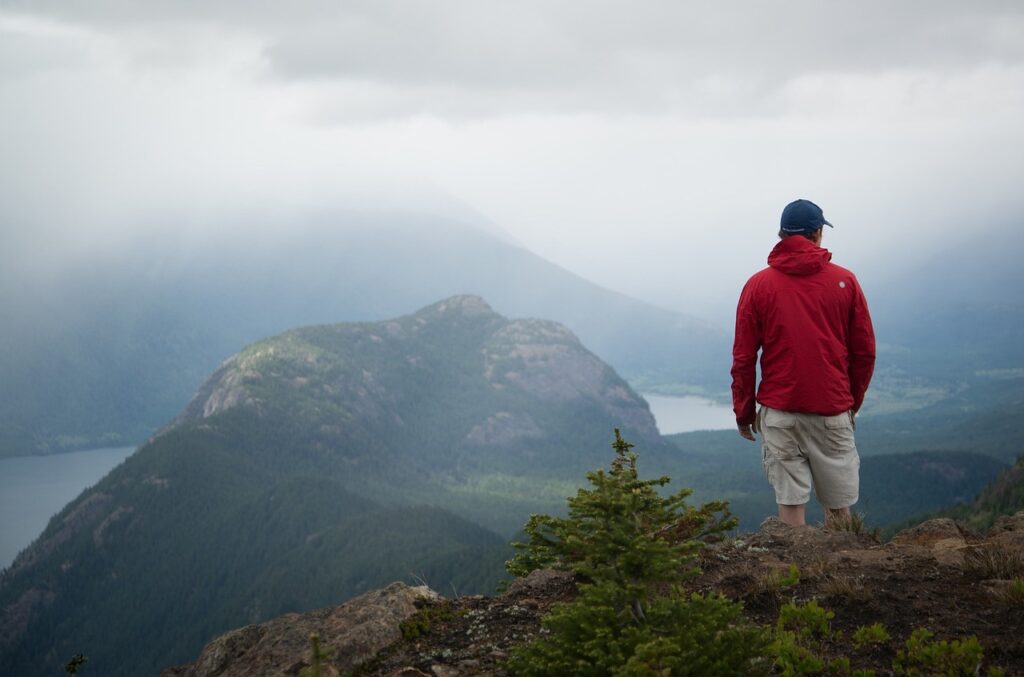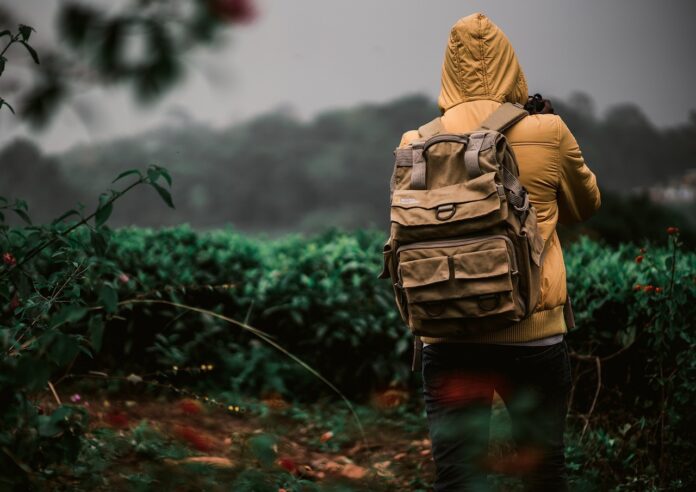Solo travel can be an incredibly rewarding experience, allowing you to explore new destinations at your own pace and on your own terms. Sri Lanka, with its rich history, vibrant culture, and breathtaking landscapes, is a perfect destination for solo travelers. In this article, we will provide you with essential tips and advice to ensure a memorable and safe solo trip to Sri Lanka.
Introduction

Have you ever dreamt of embarking on a solo adventure that combines beautiful landscapes, vibrant culture, and warm hospitality? Look no further than Sri Lanka, a captivating island nation nestled in the Indian Ocean. Solo travel in Sri Lanka allows you to immerse yourself in the country’s rich heritage, explore ancient ruins, relax on pristine beaches, and savor tantalizing cuisine. In this article, we will provide you with valuable tips and guidance to make your solo trip to Sri Lanka a truly unforgettable experience.
Planning Your Trip

Research and Gather Information
Before embarking on your solo journey to Sri Lanka, it’s essential to conduct thorough research. Learn about the country’s history, culture, and customs. Discover the must-visit destinations, hidden gems, and local festivals. Seek out reliable travel resources, online forums, and travel blogs to gain valuable insights from experienced travelers. Gathering information beforehand will help you make informed decisions and create an itinerary that suits your preferences.
Determine Your Budget
Establishing a budget is a crucial step in planning any trip, including solo travel to Sri Lanka. Determine how much you are willing to spend on accommodation, transportation, meals, and activities. Sri Lanka offers a wide range of options to suit various budgets, from budget guesthouses and homestays to luxurious resorts. By having a clear budget in mind, you can make smarter choices without overspending.
Obtain Necessary Travel Documents
Ensure that you have all the required travel documents before setting off on your solo adventure. Check the visa requirements for your nationality and apply for a visa well in advance if necessary. Additionally, make sure your passport is valid for at least six months beyond your intended departure date. Carry a copy of your passport, visa, and important contact numbers in case of emergencies.
Book Accommodation and Transportation
To ensure a smooth and hassle-free solo trip, it’s advisable to book your accommodation and transportation in advance. Sri Lanka offers a wide range of accommodation options, including hotels, guesthouses, and hostels. Consider factors such as location, safety, and reviews when making your choices. For transportation, you can opt for public buses and trains, hire a private driver, or explore the country’s iconic tuk-tuks.
Safety Precautions
Stay Informed about the Local Situation
Safety should be a top priority for any traveler, especially when venturing alone. Stay informed about the local situation and any travel advisories issued by your home country. Keep track of current events and developments in Sri Lanka to ensure you are aware of any potential risks or safety concerns.
Dress Appropriately and Respect Local Customs
Respecting the local culture and customs is essential during your solo journey. Sri Lanka is a conservative country, particularly in religious and rural areas. Dress modestly and avoid wearing revealing clothing, especially when visiting temples and religious sites. Be respectful and mindful of local customs, traditions, and etiquette.
Stay Alert and Trust Your Instincts
When traveling alone, it’s important to stay alert and trust your instincts. Be aware of your surroundings, particularly in crowded places and public transportation. Avoid isolated areas, especially at night. Trust your gut feelings and take necessary precautions if something feels uncomfortable or unsafe.
Take Care of Your Belongings
Protect your belongings and valuables while traveling solo in Sri Lanka. Keep your passport, cash, and important documents in a secure place, such as a hotel safe. Avoid displaying expensive items or flashing large amounts of cash in public. Use a money belt or a secure bag to carry your essentials while exploring.
Getting Around
Public Transportation
Sri Lanka has an extensive public transportation network, including buses and trains. Public buses are a cost-effective way to travel between cities and towns. Trains offer a scenic and comfortable option for longer journeys. However, be prepared for crowded conditions during peak hours and consider booking reserved seats in advance for a more relaxed experience.
Hiring a Private Driver
If you prefer convenience and flexibility, hiring a private driver can be a great option. A private driver allows you to customize your itinerary, stop at lesser-known attractions, and travel at your own pace. It also provides an opportunity to interact with a local who can share valuable insights and recommendations.
Tuk-tuks and Motorcycles
For shorter distances and exploring within cities, tuk-tuks and motorcycles are popular modes of transportation in Sri Lanka. Negotiate the fare before starting your journey and ensure that the driver follows safety regulations. Always wear a helmet if riding a motorcycle and exercise caution on busy roads.
Must-Visit Destinations
Colombo
As the capital city of Sri Lanka, Colombo is a vibrant and bustling metropolis that showcases a blend of colonial architecture, modern skyscrapers, and bustling markets. Explore the historical and cultural attractions such as the Colombo National Museum, Gangaramaya Temple, and the iconic Galle Face Green. Indulge in delicious street food and experience the city’s vibrant nightlife.
Kandy
Located in the heart of the island, Kandy is known for its rich history, scenic beauty, and the sacred Temple of the Tooth Relic. Witness the traditional Kandyan dance performances, visit the Royal Botanical Gardens, and enjoy a stroll around the picturesque Kandy Lake. Don’t miss the opportunity to experience the world-famous Esala Perahera festival if you visit during the month of August.
Galle
Galle, a UNESCO World Heritage Site, is a charming coastal town with a well-preserved Dutch colonial fort. Explore the narrow streets lined with colonial-era buildings, visit the Galle Fort Lighthouse, and immerse yourself in the vibrant atmosphere of the Galle Fort. Enjoy breathtaking sunsets from the fort walls and savor fresh seafood in one of the local restaurants.
Sigiriya
Sigiriya, also known as Lion Rock, is a remarkable ancient rock fortress with stunning views and fascinating history. Climb to the top of the rock to admire the ruins of the palace complex and marvel at the impressive frescoes. Explore the beautifully landscaped gardens and learn about the ancient civilization that once thrived in this area.
Ella
Ella, nestled amidst tea plantations and lush green mountains, offers a tranquil and picturesque escape for solo travelers. Hike up to Ella Rock for panoramic views, visit the Nine Arch Bridge, and indulge in a refreshing cup of Ceylon tea at one of the tea factories. The laid-back vibe and stunning natural beauty make Ella a must-visit destination in Sri Lanka.
Cultural Etiquette
Greeting and Respectful Gestures
When interacting with locals in Sri Lanka, it’s polite to greet them with a smile and a slight nod of the head. Join your palms together in a prayer-like gesture, known as “Namaste” or “Ayubowan,” while saying “hello” or “thank you.” This respectful gesture is commonly used to show gratitude and is appreciated by the locals.
Understanding Buddhist Customs
Buddhism plays a significant role in Sri Lankan culture, and it’s important to understand and respect Buddhist customs. When visiting temples, remove your shoes and cover your shoulders and knees. Avoid touching or climbing on statues and relics. Observe and follow the practices of locals, such as lighting incense and making offerings.
Religious Sites and Dress Code
Sri Lanka is home to numerous religious sites, including temples, stupas, and mosques. Dress modestly and respectfully when visiting these sacred places. Women should cover their shoulders and wear long skirts or pants. Men should avoid wearing shorts and sleeveless shirts. Remember to remove your shoes before entering temples and follow the instructions of the local authorities.
Local Cuisine and Food Safety
Trying Local Delicacies
One of the highlights of visiting Sri Lanka is the incredible variety of local cuisine. From aromatic rice and curry dishes to spicy street food, the country offers a gastronomic adventure for solo travelers. Don’t miss out on trying traditional dishes like hoppers, kottu roti, and fresh seafood. Embrace the local flavors and indulge in the unique culinary experiences Sri Lanka has to offer.
Hygiene and Food Precautions
While exploring the local cuisine, it’s important to prioritize food safety and hygiene. Look for clean and reputable restaurants or food stalls. Ensure that the food is freshly cooked and served hot. Drink bottled water or use a water purifier to avoid any water-borne illnesses. Wash your hands frequently or carry hand sanitizer for added hygiene.
Street Food Experiences
Sri Lanka’s street food culture is vibrant and exciting. Sample a variety of street snacks such as samosas, vadais, and kothu roti from the local food stalls. Engage with the street food vendors, learn about their recipes and techniques, and savor the authentic flavors of Sri Lankan street food. However, exercise caution and choose vendors with good hygiene practices.
Engaging with Locals
Learning Basic Phrases
Interacting with locals can enrich your solo travel experience in Sri Lanka. Learn a few basic phrases in Sinhala or Tamil, the two main languages spoken in the country. Greetings like “Ayubowan” (hello) and “Mama oyaanam” (I need help) can go a long way in building connections and showing respect for the local culture.
Participating in Community Activities
Immerse yourself in the local community by participating in cultural activities or volunteering opportunities. Engage in cooking classes to learn traditional Sri Lankan recipes, join a yoga or meditation session, or contribute to a local community project. These experiences not only provide a deeper understanding of the culture but also create lasting memories.
Joining Guided Tours and Workshops
Joining guided tours and workshops is an excellent way to explore Sri Lanka’s hidden gems and learn from local experts. Opt for guided city tours, wildlife safaris, or workshops on traditional arts and crafts. Engaging in these activities allows you to gain insights, make new friends, and create unique experiences during your solo journey.
Enjoying Nature and Wildlife
National Parks and Wildlife Sanctuaries
Sri Lanka is renowned for its rich biodiversity and abundant wildlife. Explore the country’s national parks and wildlife sanctuaries for a chance to spot elephants, leopards, sloth bears, and a wide variety of bird species. Yala National Park, Udawalawe National Park, and Minneriya National Park are some of the popular wildlife destinations worth visiting.
Beaches and Coastal Areas
With its pristine coastline and turquoise waters, Sri Lanka offers stunning beaches for relaxation and water activities. Unwind on the golden sands of Bentota, Mirissa, or Arugam Bay. Engage in water sports such as snorkeling, diving, or surfing. Enjoy breathtaking sunsets and soak in the laid-back beach vibe during your solo beach getaway.
Hiking and Trekking Routes
For adventure enthusiasts, Sri Lanka boasts picturesque hiking and trekking routes. Scale the peaks of Adam’s Peak for a memorable sunrise experience, trek through the Knuckles Mountain Range, or hike to the stunning World’s End viewpoint in Horton Plains National Park. These trails offer a chance to connect with nature, enjoy breathtaking views, and challenge yourself.
Health and Well-being
Vaccinations and Travel Insurance
Before traveling to Sri Lanka, consult a healthcare professional to ensure you are up to date on routine vaccinations. Depending on your travel plans, additional vaccinations such as typhoid, hepatitis A, and rabies may be recommended. It’s also crucial to have comprehensive travel insurance that covers medical expenses, trip cancellations, and personal belongings.
Staying Hydrated and Avoiding Dehydration
Sri Lanka’s tropical climate can be hot and humid, so it’s important to stay hydrated throughout your solo journey. Carry a reusable water bottle and drink plenty of fluids, especially water and coconut water. Avoid excessive alcohol consumption, as it can dehydrate your body. Protect yourself from the sun by wearing a hat, sunglasses, and sunscreen.
Adapting to the Climate
Sri Lanka experiences a tropical monsoon climate with distinct wet and dry seasons. Pack appropriate clothing for the prevailing weather conditions during your visit. Lightweight and breathable fabrics, such as cotton, are recommended to stay comfortable in the heat. However, it’s also advisable to carry a light jacket or shawl for cooler evenings or when visiting higher-altitude areas.
Responsible Tourism
Respect for the Environment
As a responsible solo traveler, it’s essential to respect the environment and minimize your impact on the natural surroundings. Dispose of waste properly and avoid littering. Opt for eco-friendly activities and tours that promote sustainable practices. Support organizations and initiatives that are dedicated to conservation and environmental protection.
Supporting Local Businesses
Supporting local businesses is a great way to contribute to the local economy and immerse yourself in the culture. Choose locally owned accommodations, restaurants, and shops to directly benefit the local community. Engage with local artisans and purchase authentic handicrafts as souvenirs. By doing so, you support traditional craftsmanship and help preserve cultural heritage.
Conclusion
Embarking on a solo trip to Sri Lanka offers a wonderful opportunity to explore a diverse range of attractions, immerse yourself in a rich cultural heritage, and connect with warm and friendly locals. By following these solo travel tips, you can ensure a safe, memorable, and enriching experience. From booking your accommodation and transportation in advance to respecting local customs and engaging with the community, each step of your journey will be filled with adventure and discovery. So pack your bags, embrace the spirit of solo travel, and get ready to create unforgettable memories in the beautiful island paradise of Sri Lanka.
1. Is Sri Lanka safe for solo female travelers?
Sri Lanka is generally considered safe for solo female travelers. However, it’s important to take basic precautions such as staying in well-lit and populated areas, dressing modestly, and being aware of your surroundings. It’s advisable to use reputable transportation services and accommodations, and to inform someone of your itinerary.
2. What is the best time of year to visit Sri Lanka?
The best time to visit Sri Lanka depends on the region you plan to explore. The west and south coasts are ideal from November to April, while the east coast is best from May to September. The hill country can be visited year-round, but it can get chilly in the evenings. It’s recommended to check the weather and plan accordingly.
3. Can I use credit cards in Sri Lanka?
Credit cards are widely accepted in major cities and tourist areas in Sri Lanka. However, it’s always a good idea to carry some cash, especially when visiting smaller towns and rural areas where card acceptance may be limited. Inform your bank about your travel plans to avoid any issues with card usage.
4. Do I need a visa to visit Sri Lanka?
Yes, most visitors to Sri Lanka require a visa. You can apply for an Electronic Travel Authorization (ETA) online before your trip. The ETA allows you to stay in Sri Lanka for up to 30 days for tourism purposes. Ensure that your passport is valid for at least six months beyond your intended departure date.
5. What are some must-try dishes in Sri Lanka?
Sri Lankan cuisine offers a delightful range of flavors and dishes. Some must-try dishes include rice and curry (a variety of curries served with rice), hoppers (fermented rice pancakes), kottu roti (chopped roti with vegetables and meat), and seafood specialties like jumbo prawns and crab curry. Don’t forget to sample the delicious tropical fruits and Ceylon tea.
